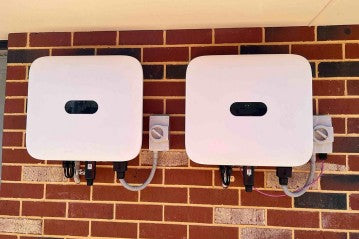
As renewable energy sources like solar power become more popular, so does the need for efficient and reliable energy storage solutions. One important component of any solar power system is the inverter, which converts the direct current (DC) generated by solar panels into the alternating current (AC) required to power homes and businesses. A hybrid inverter is a type of inverter that can be used in conjunction with battery storage to provide a more efficient and reliable solar power system. In this blog post, we'll explore where and why to use hybrid inverters in solar applications.
A Hybrid Inverter Can Be an All-in-One Solution
One of the primary benefits of a hybrid inverter is that it can be an all-in-one solution for your solar power system. It combines the functions of a solar inverter and a battery charger, which means you can store energy in batteries and use it when there is a power outage or during peak hours when electricity prices are high. This means you'll have access to reliable power even when the grid goes down.
Inverters Come with Several AC Output Curves. Here is a Quick Review of Each Type:
(1) Square Wave Inverters: Square wave inverters are the most basic type of inverter. They create a square wave output that mimics the waveform of the AC power grid. However, the output waveform is not as smooth as other types of inverters, which can cause problems with some appliances.
(2) (Pure) Sine Wave Inverters: Sine wave inverters create a smooth, sine wave output that is similar to the waveform of the AC power grid. This makes them more efficient and reliable than square wave inverters, and they can be used with a wider range of appliances.
(3) Modified Square Wave or Modified Sine Wave Inverters: Modified square wave or modified sine wave inverters are a compromise between square wave and sine wave inverters. They create an output waveform that is somewhere between a square wave and a sine wave, which makes them more efficient than square wave inverters, but not as efficient as sine wave inverters.
When a Hybrid Inverter Should Not Be Used

There are some cases where a hybrid inverter may not be the best choice for your solar power system. For example, if you live in an area with a reliable power grid and don't experience frequent power outages, a standard inverter may be all you need. Additionally, if you have a small solar power system and don't generate enough excess energy to store in batteries, a hybrid inverter may not be necessary.
When to Use a Hybrid Inverter
If you're looking for a more efficient and reliable solar power system, a hybrid inverter may be the right choice for you. Hybrid inverters are ideal for use in off-grid or grid-tied solar power systems, particularly in areas with unreliable power grids or frequent power outages. They provide power resiliency by allowing you to store energy in batteries and use it when there is a power outage. Additionally, by using a hybrid inverter in conjunction with battery storage, you can reduce your reliance on the grid and reduce your electricity bill.
In conclusion, a hybrid inverter is an important component of any solar power system, particularly for those looking to improve power resiliency, save on energy costs, and reduce their carbon footprint. They are ideal for use in off-grid or grid-tied solar power systems and provide a more efficient and reliable energy storage solution. Be sure to consider the benefits of a hybrid inverter and whether it's the right choice for your energy needs and budget. With the right solar power system and hybrid inverter, you can enjoy the benefits of reliable, efficient, and sustainable energy.

0 Kommentare